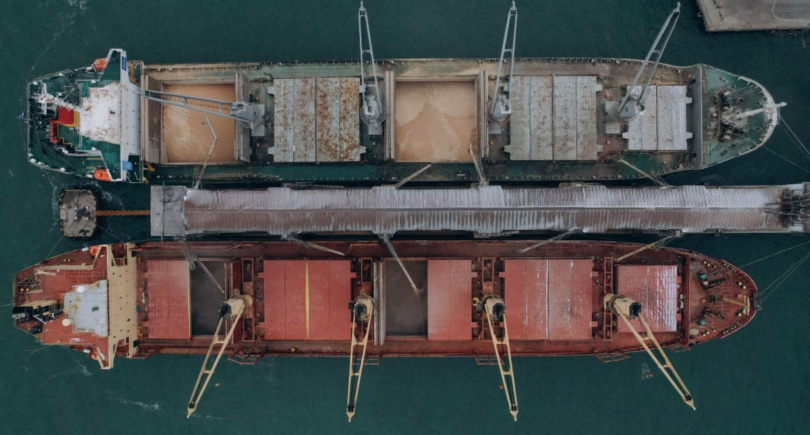
News Infrastructure sea transportation 2344 14 December 2023
Among the tasks of the coalition is ensuring the safety of civil shipping and the operation of the Ukrainian corridor
The United Kingdom has announced the creation of a maritime coalition to ensure the safety of civilian shipping and the operation of the Ukrainian corridor. This is stated in a statement by the Ukrainian Navy.
The Ukrainian delegation, led by Vice Admiral Oleksiy Neizhpapa, Commander of the Navy, took part in the ceremony on the occasion of the creation of the coalition. The event was also attended by British Defense Secretary Grant Shepps, Norwegian Defense Minister Bjørn Arild Gram, and high-ranking officials from other countries.
The coalition was created at the initiative of the United Kingdom and aims to increase Ukraine’s capabilities at sea. Its members will provide Ukraine with ships, equipment, and will train boat crews of naval and river flotillas, marines, air defense, mine countermeasures units, and more.
The main tasks of the coalition are to help Ukraine win a victory at sea, ensure the safety of civilian navigation and eliminate the mine danger, as the Black Sea is currently the most dangerous in terms of mine safety in Europe. The sea is a highway and it should be equal for everyone, which is why we must protect it and become such a powerful fleet that the Russian Federation will never have a desire to seize it again,» said Oleksiy Neizhpapa.
As GMK Center reported earlier, Ukraine and a pool of British companies have created a mechanism to facilitate exporters’ access to the Black Sea corridor, Prime Minister Denys Shmyhal said. The Prime Minister also said that the country is cooperating with key global institutions that can provide guarantees for investors to invest in Ukraine right now.
Also, since the launch of the Ukrainian sea corridor on December 4, more than 7 million tons of cargo have been exported from Pivdenny, Odesa and Chornomorsk ports, including almost 5 million tons of agricultural products. Since August 8, 200 vessels have used the temporary corridor to leave the ports and 226 to enter. Exports of iron and steel products rank second in terms of volume after external sea deliveries of agricultural products.




